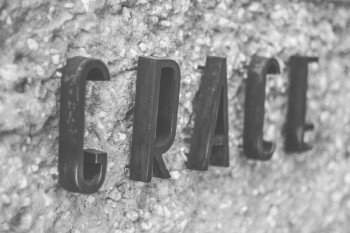Hitler, Stalin, and Mao murdered millions in their day yet attracted even more millions of devoted followers. Today we wonder how totalitarians could have amassed such power—even as many this week consider the brutal legacy of Fidel Castro—but we forget what they all offered: the vision of a perfect world, one without God.
The best example might be Pol Pot, whose Khmer Rouge regime took over Cambodia on April 17, 1975. He turned his brand of Communism into a national religion, enforced by a revolutionary organization called “Angka.” With the promise of an agrarian utopia he justified the murder of about 1.7 million people—nearly a quarter of the population—through execution, torture, starvation, and disease.
To many of us in the West, such violence seems a distant threat, and Pol Pot a Cold War relic. But the Khmer Rouge remind us that totalitarians gain power after the ideas that justify them have taken root.
Radha Manickam, a Cambodian Christian who survived the Khmer Rouge, encountered such ideas firsthand. Here are three truths about totalitarians that are profoundly relevant for today.
1. Totalitarians control thought and action by controlling speech.
Manickam was 22, a new believer, and living in Phnom Penh when the Khmer Rouge took the country. He and his family were sent to dig canals and tend rice fields in northwest Cambodia. Though Manickam was often nearly executed, he came closest one night in 1978 after finally deciding to end his life. Lying atop a termite hill in a rice paddy, he started to sing “This World Is Not My Home.”
A passing patrol heard him and came over. “Comrade,” asked the leader, a 14-year-old with an AK-47, “what language are you singing in?” Manickam knew he just had to say “English” and he would be immediately shot or beaten to death. His crime: voicing something tainted by Western culture or religion. Manickam lied and told the soldiers he was just making up sounds. He survived another night.
Scripture says nothing of a “right” to “free speech,” but it does command us to preach the gospel and speak the truth in love—no matter what any government says.
2. Totalitarians deny that human nature has limits.
Pol Pot believed human beings are blank slates who could, with enough force, be molded into any shape he chose. People don’t need friends they can trust or work that matters. To forge the “new socialist man” and enact his utopia, Pol Pot swept away the institutions of the old society—markets, businesses, churches, schools, as well as traditional ideas about marriage, family, and private property—and replaced them with Angka.
That’s why Manickam was, like millions of others, separated from his family and forced onto backbreaking work crews, living on little food and less sleep under the surveillance of cadres and spies. Hundreds of thousands died as a result, but those who survived might possibly join Angka’s new prosperous, just, classless, egalitarian society.
3. Totalitarians believe humans create reality.
For Pol Pot, the most important factor in any human context was “revolutionary consciousness.” He commanded, for example, his people to raise seven tons of rice per hectare annually from paddies that had never produced more than two.
During the ongoing border war with Vietnam, Pol Pot declared, “We absolutely must implement the slogan of 1 against 30.” He’d decided 1 Khmer soldier should be able to kill 30 Vietnamese before dying in battle and so, estimating conservatively: “We need only 2 million troops to crush the 50 million Vietnamese.”
It was delusional, but not in the usual sense. As Orwell’s Big Brother explained in 1984, reality isn’t objective and external for the true Communist revolutionary. Reality exists only in the human mind and, further, the collective mind: “It is impossible to see reality except by looking through the eyes of the Party.”
It seems bizarre when stated so baldly, but a version of this idea is hugely popular today in academia and elsewhere. “Social constructionism” teaches that societies and even individuals can create their own moral, cultural, and personal “truths.” So if human nature is infinitely malleable and people can create their own truths, then it’s plausible—even rational—to believe we can determine our own sexual identity or someday build a world without racism. For those who believe, utopia seems within reach.
The Bible is clear, however, that though we are created in the image of God, we are tragically fallen. No human institution can be perfected. Persons can be redeemed and transformed or corrupted and depraved but, male or female, we cannot be anything other than human. In short, we don’t create reality; God does. And we must live within his limits.
God’s Purposes Prevail
By the time Communist Vietnam ousted the Khmer Rouge in early 1979, Manickam’s father, grandmother, five siblings, and other relatives had died of starvation, disease, or beatings. But in 1978 cadres had forced him to marry a woman who turned out to be one of the few Christians still alive in Cambodia, the daughter of a Phnom Penh pastor. Together they escaped to refugee camps in Thailand.
From there the young couple settled in Seattle, and today Manickam ministers to Khmer churches in the northwest United States and Cambodia. In the aftermath of the Khmer Rouge, Christian aid organizations flooded into Cambodia, and the number of Christians there has blossomed from a few thousand in the early 1970s to perhaps 200,000 today.
Most of those in our culture today who promote ideas such as social constructionism would reject the violence of Pol Pot. But Christians especially should be able to recognize the ideas of those who envision a world without God—and we cannot forget what some have done in their pursuit of it. Satan is, after all, both a murderer and the father of lies.
Editors’ note: Be sure to pick up a copy of Les Sillars’s new book on Radha Manickam’s journey, Intended for Evil: A Survivor’s Story of Love, Faith, and Courage in the Cambodian Killing Fields (Baker, 2016).




